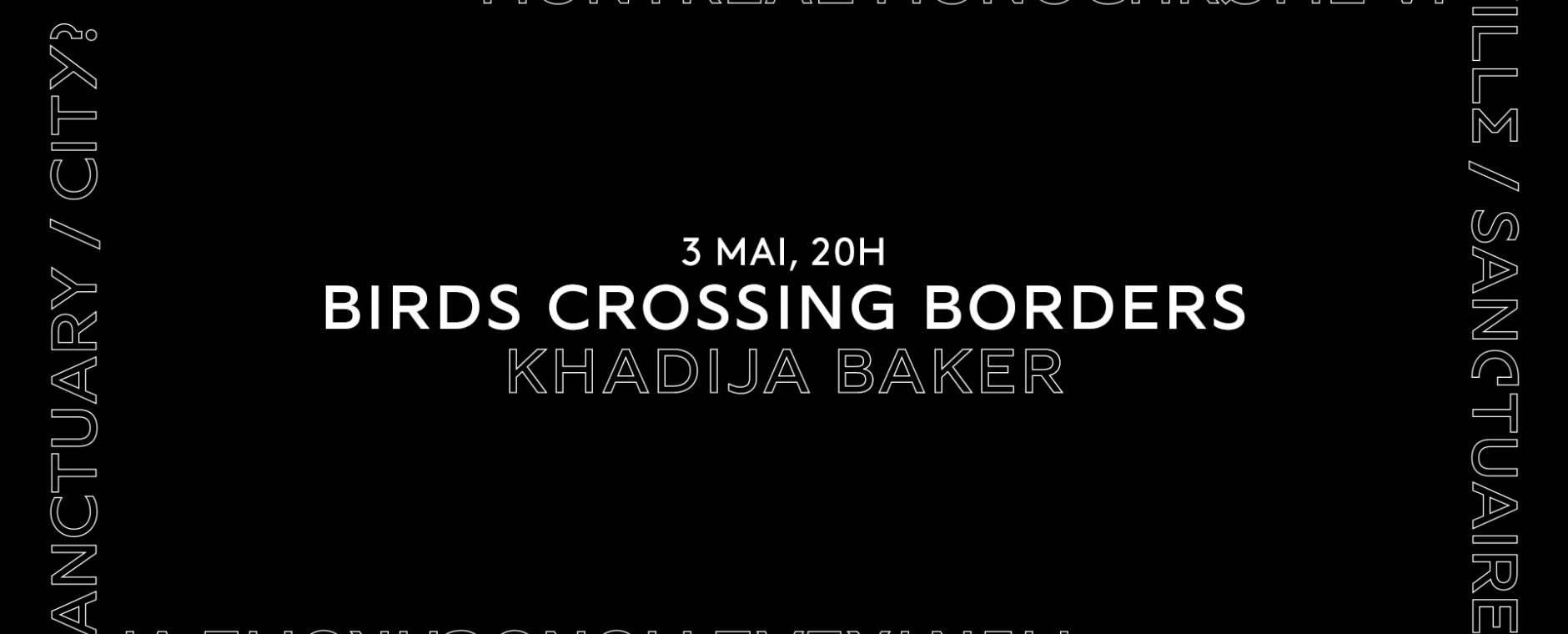Birds Crossing Borders
Khadija Baker
Interactive presentation
free
For refugees and people who seek safety, borders are critical as they are essential to access this feeling. Safety will then shift according to the lived experiences of the past place, especially ones that are violent, and especially for those who have lived it. Borders are less relevant not because they are crossed but because the place is not at the center anymore: it is access to society, and to connect, which allow feelings of certainty that usually come with feelings of belonging. A live performance to tell a story through spoken word of a refugee crossing borders, including participants who will sculpt the artist’s body. As the body will freeze, it is expected to stop the artist’s movement; a symbolic way for participants to witness the challenge of refugees’ immobility and to hear their stories closely.
This project is generously supported by articule and The SenseLab at Concordia University.
Khadija Baker is a Montreal-based, multi-disciplinary artist of Kurdish-Syrian descent. Her installations investigate social and political themes centered on the uncertainty of home as it relates to persecution, identity, displacement and memory. Her multidisciplinary installations (textile, sculpture, audio/video) involve participative storytelling and performance to create active spaces of empathy and greater understanding. Her most recent work explores the social aspects of violence in the Arab world, and specifically how it affects women and children.
Montréal Monochrome is an annual event which aims to address the mis- and under-representation and systemic oppression of marginalized groups in Montréal’s contemporary art milieu. The event works toward imagining and nurturing new and existing bonds, solidarities and friendships between Indigenous artists, thinkers and cultural workers and their racialized allies. This sixth edition of Montréal Monochrome wishes to explore the different meanings and socio-political ramifications that the concept of “sanctuary city” includes or suggests, especially if it is used to speak to notions of an unceded Indigenous territory. What does the city of “Montréal” represent for its inhabitants? A land of opportunity or the continuation of a colonial project? If not a sanctuary for its inhabitants, how can the city generate its own safe spaces? How do people belonging to marginalized communities develop their own survival strategies, self-protection, and self-care? The projects of this sixth edition speak to themes of sanctuary city, the sacred, the colonial project of Canada, and the right of peoples to self-determination.
articule’s gallery and washrooms are partially wheelchair accessible. If you have questions, require childcare, or have any other specific needs, please call us at 514-842-9686 or contact outreach@articule.org with advanced notice.
articule thanks our partner Programme Montréal Interculturel (PMI).
